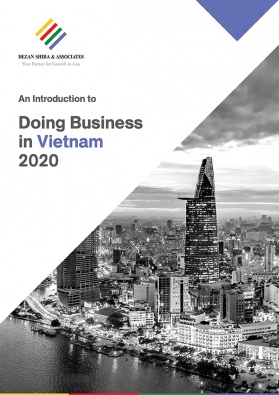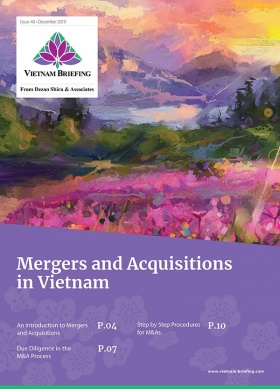Q&A: The Impact of COVID-19 and Guidance for Employers
COVID-19 has resulted in an inevitable global shutdown frustrating businesses, investors, supply chains and Human Resource (HR) functions.
What started out as limited business disruption due to the low number of cases has now affected most if not all businesses. While Vietnam has controlled the pandemic relatively well, the government on March 31 issued Directive No. 16/CT/TTg – its strongest measures yet on social distancing nationwide until April 15. The directives also states that factories and businesses providing essential goods can remain open.
Two major concerns of our clients in Vietnam are labor shortages, and disruptions to supply chains.
If factories stop production for an extended period it impacts supply chains and the flow of materials. For example, Ford and Honda have already suspended production in Vietnam due to the difficulties faced by COVID-19, while Samsung also facing challenges acquiring raw inputs for production.
Global businesses need to stay on top of the viability of receiving and sending shipments, this may mean identifying new suppliers or revising sales forecasts.
We recommend that now is an ideal time to conduct a health check on your business to assess potential risks and impacts.
We advise our clients to carefully assess their exposure and communicate closely with suppliers or customers and be well prepared to assess their stock levels, cash flow and human resources in the event the situation worsens.
Businesses should also have clear disaster recovery and business continuity plans in place.
In this Q&A with Trent Davies, International Business Advisory Manager, Dezan Shira & Associates, Ho Chi Minh City, we focus on the HR challenges businesses may face during this time.
From a labor law perspective, how do you recommend companies manage employee absence?
The immediate impact is that many staff are unable to return to work or choose to work from home. In Vietnam, given the school closures we have had to be much more flexible with staff working from home. Some companies are helping to prevent the spread of the disease by promoting the washing of hands, supplying masks, and disabling fingerprint scanners.
It is important for businesses to be prepared if the outbreak worsens. This includes having a thorough understanding of employee and employer rights and being prepared to be understaffed.
We also encourage companies to consider remote working solutions if this does happen. Internally we use many cloud-based software programs to enable people to be flexible.
Have there been any official directions from the government regarding labor due to the virus?
The Ministry of Labor introduced Official Letter 1064/LĐTBXH-QHLĐTL on March 25 guiding salary and other payments in accordance with current laws while the Prime Minister released Directive No. 11/CT-TTg giving instruction to the relevant labor agencies to alleviate challenges faced due to the epidemic.
The government has requested companies to remain vigilant by increasing controls and limiting virus transmission in the workplace. It is advisable that employers make an official announcement to their employees about the status of the epidemic and implement appropriate measures to prevent the transmission of COVID-19 at the workplace.
If an employee is infected, does the company have the right to terminate the employee?
Absolutely not. According to Section 1, Clause 39, Vietnam Labor Code 2012, an employer is prohibited from unilaterally terminating labor contracts if the employee is sick or has a work accident or occupational disease and is being treated or nursed under the decision of a competent health establishment.
However, the 2012 Labour Code allows an employer to unilaterally terminate the labor contract with an employee with three working days advance notice when an employee being sick for:
- 12 consecutive months (in case of indefinite term labor contract)
- 6 consecutive months (in case of definite term labor contract)
- More than half of the contract term (in case of labor contract of less than 12 months)
And remains unable to work after having received medical treatment.
If an employee appears sick, is it possible to ask the employee to isolate himself or herself at home before resuming work? How is this possible in compliance with the law?
You can request the employee to work from home on these days and still pay them a salary. The company can recommend self-isolation at home for at least 14 days if they have been to a place suspected to be infectious before resuming work. Those who have symptoms should visit the hospital for a diagnosis.
How does a business pay salaries to employees if it suspends its business operations due to COVID-19?
According to Section 3, Article 98 of the Labor Law, Wage in case of work suspension:
If due to objective reasons such as dangerous epidemic/pandemic, the wage during work suspension must be agreed by the two parties but must not be lower than the regional minimum wage stipulated by the government.
As a result, the employee still receives a salary, but this salary can be negotiated during the work stoppage. However, this case can only be applied when the government requests employees to stay at home. If the employer actively allows the employee to be off, it will depend on negotiations between the employer and employee. They can discuss to consider it as annual leave, unpaid leave or another arrangement such as delay in labor contract implementation.
For investors planning to invest in Vietnam, should they go ahead with their plan or wait? And why?
We are positive and recommend continuing operations as normal but that companies keep up to date and are prepared in case things get worse.
Vietnam is not out of the woods yet. However, businesses that plan for the worst-case scenario and simulate response strategies for all possible cases will emerge out of this situation relatively better than those with a sense of complacency.
During this period many necessary steps for investment can be handled from firms such as ours, who remain on the ground and are ready to assist clients.
About Us
Vietnam Briefing is produced by Dezan Shira & Associates. The firm assists foreign investors throughout Asia from offices across the world, including in Hanoi and Ho Chi Minh City. Readers may write to vietnam@dezshira.com for more support on doing business in Vietnam.
- Previous Article COVID-19: Managing Your Human Resources in Vietnam
- Next Article Trotz COVID-19 hat Vietnams Wirtschaft noch die schnellste Wachstumsrate in Südostasien







